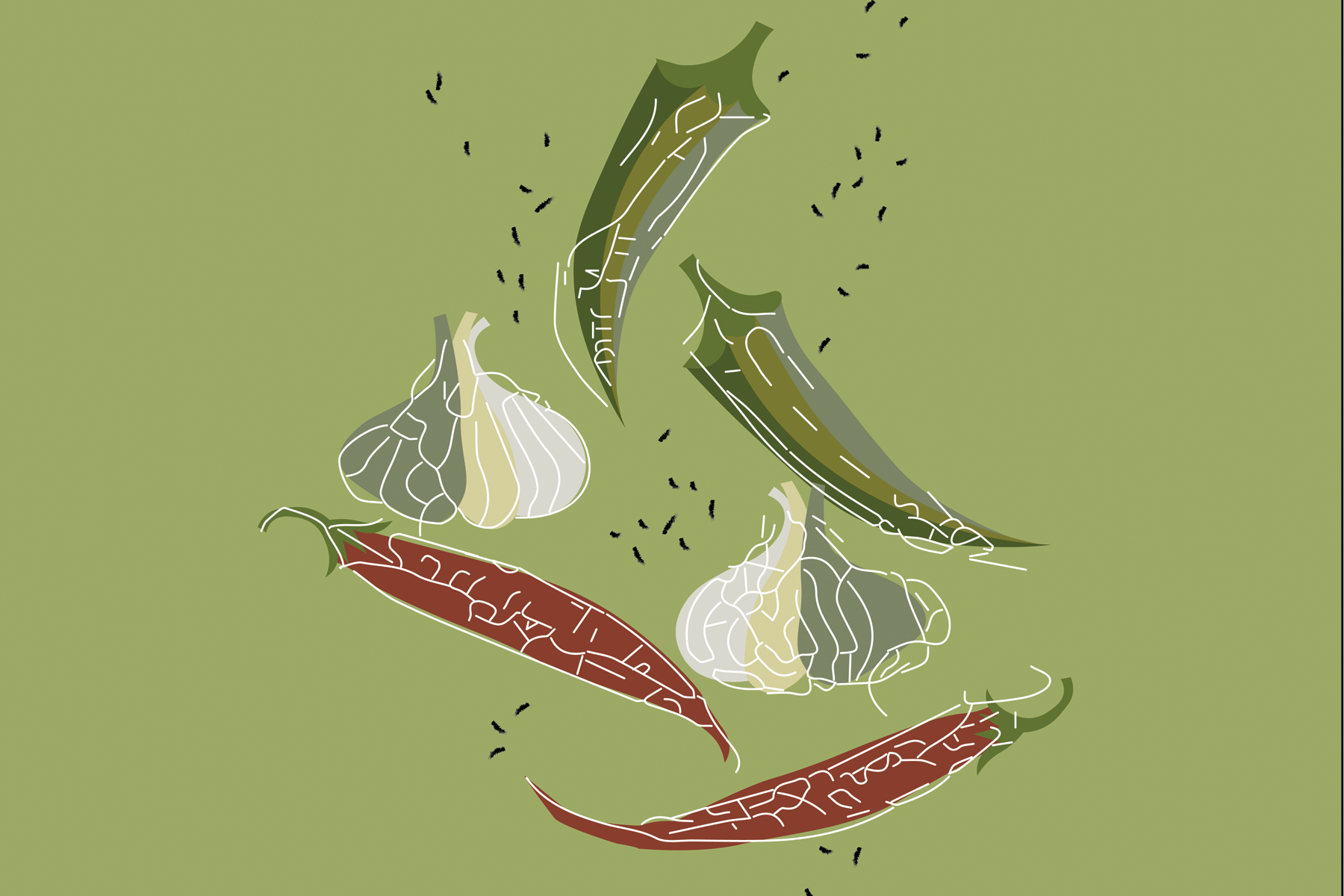In recent years, vegetarianism and veganism have become increasingly accepted as healthy alternatives to an omnivorous lifestyle. Scientific studies proclaiming the health benefits of a meatless lifestyle, as well as documentaries such as “Food, Inc.” that expose the moral problems of industrial meat production and consumption, have inspired many to adopt a vegetarian diet. Although, people are not only accepting plant-based diets anymore — they are also evangelizing them.
I have been supportive of plant-based living for years: In middle school, I committed to eating only humanely raised meat before going fully vegetarian during high school. I was, and still am, especially influenced by the ethical ramifications of a meatless diet. American factory farming horrifies me: The enclosure of animals in small spaces without room to graze and frequent antibiotic and hormone injections that harm the health of animals are just two examples of inhumane industrial farming practices.
In addition, the environmental benefits of reducing meat consumption are enormous: Although carbon dioxide is by far the biggest culprit in global greenhouse gas emissions, methane — a gas that cows produce — is much more potent. Continuing factory farming at its current rate of production will only increase the amount of methane in the atmosphere.
We need to be doing what we can to phase out factory farming, to support the ethical treatment of animals and to improve the health of ourselves and our planet with plant-based food. My problem with the movement is the way this message is being conveyed.
The narrative surrounding vegetarianism, previously contained within personal conversations and doctor visits, is now publicly steeped in moral superiority. It says, “If you’re a good person, you’ll stop eating meat altogether.” Don’t get me wrong — what we eat is political. Meat consumption has real environmental and ethical impacts beyond ourselves. In the era of COVID-19, in which the virus is severely affecting meat packing workers, shutting down industrial farming facilities and leading farmers to euthanize animals, it is clear that the American food system’s current reliance on meat is damaging our communities.
Jonathan Safran Foer makes this argument in his recent New York Times op-ed, titled “The End of Meat Is Here.” On the whole, it’s a good article; I agree with his stance that the coronavirus has exposed the degree to which we seriously need to reduce our meat consumption. He advocates urgency and appeals to “a world in which farmers were not myths, tortured bodies were not food and the planet was not the bill at the end of the meal.” I think most of us want to live in that world. But his message that everyone needs to cut out meat completely is harmful.
First and foremost, your diet impacts your physical and mental well-being, and those who advocate a complete transition to a no-meat society do not do justice to this fact. Safran Foer addresses the health impacts of vegetarianism, writing, “Don’t we need animal protein? No. We can live longer, healthier lives without it. Most American adults eat roughly twice the recommended intake of protein — including vegetarians, who consume 70 percent more than they need.”
This is all true. What is also true — and what Safran Foer fails to mention — is that vegetarian diets, although beneficial for our hearts and kidneys, can lead to vitamin deficiencies that impact health. Nutrients only found in animal products, such as vitamin B-12 (cobalamin), are essential for maintaining good health. A study published in 2016 concluded that “compared to non-vegetarians, vegetarians have reduced body mass index (BMI), serum cholesterol, serum glucose and blood pressure with a lower mortality rate due to ischemic heart disease. However, underestimating the correct supplementation of cobalamin (Cbl) can nullify these benefits.”
In addition, vegetarianism can have a serious impact on mental health. A study published in April 2020 observed a distinct correlation between meat abstention and poor psychological health, declaring that “Our study does not support meat avoidance as a strategy to benefit psychological health.” And even with this new research, studies on vegetarianism and physical health still outnumber those on psychological health by a wide margin.
Claiming that vegetarianism is for everyone ignores these facts and fails to recognize the role of diet in mental health treatment. It also perpetuates the “one-size-fits-all” approach to health, which neglects the impact of individual circumstances like stress level, socioeconomic status and past trauma on well-being. Ignoring these factors makes it difficult for individuals to identify and seek out treatments for chronic physical and mental health issues.
When I went vegetarian, I didn’t know that my new diet could cause vitamin deficiencies. I felt the impact of these deficiencies my first year of college, when I was suddenly dealing with heightened anxiety that manifested itself not only through worried thoughts, but also through other physical symptoms. I went down a frustrating path of doctor visits and medical tests in search of treatments for my new chronic health issues, and had to transition out of a vegetarian diet to start remedying the imbalance I felt in my mind and body. Now, about to enter my senior year of college, I’m still dealing with these symptoms and grappling with how to eat ethically while consuming meat.
I do not share my story to scare people away from vegetarianism; rather, I want to help others reduce their meat consumption while avoiding an experience like mine. No one can responsibly recommend a vegetarian diet to others without also informing them of the potential risks.
There are ways that we can eat less meat, even forgo meat completely, while being tuned into individual health concerns. If you do want to go vegetarian, make sure you do your research on what vitamins you may have a harder time getting from your diet once you abstain from meat. Find out how you can get these nutrients in other foods, and take supplements where diet alone falls short. Adolescents and those with preexisting conditions need to be especially careful about making sure what they eat is supporting their specific needs.
That being said, transitioning to a vegetarian diet isn’t for everyone, and for those who cannot fathom giving up meat, there are still ways to eat more sustainably. The Reducetarian Foundation has plenty of resources for those who want to improve the health of humans, animals and the environment without ditching meat completely. Even just skipping meat one day a week can have a beneficial impact; according to the Natural Resources Defense Council Health Campaigns Director Sujatha Bergen, the environmental impact of the average American reducing their meat intake by one hamburger per week would be equivalent to eliminating a year’s worth of tailpipe emissions from ten million cars.
In addition, try to buy humanely raised meat whenever you can, looking out for labels that designate animals as hormone-free, free-range, and grass-fed. These labels themselves can be misleading, so check out resources such as American Grass-Fed that have lists of certified providers of grass-fed beef in each state. And when in doubt, buy from local farms.
We need to educate ourselves about the ways that we can eat more ethically, and eating less meat is one of the best ways to do that. However, we also need to encourage plant-based eating in a way that allows individuals to best take care of themselves and their families. Physical and mental health are inseparable, and we cannot detach vegetarianism from personal well-being.
So, just as we should eat responsibly, we should also advocate responsibly. Health is personal, and when it comes to diet recommendations, no one should take the moral high ground.

















